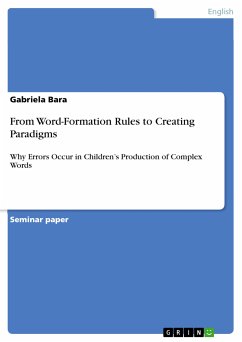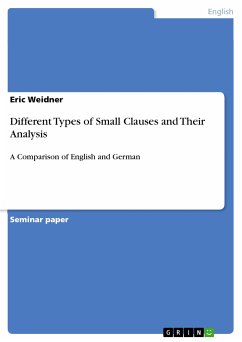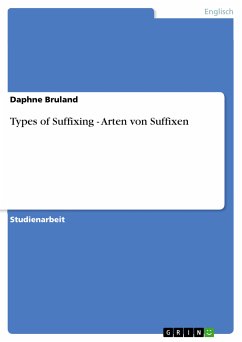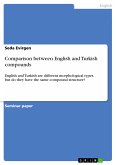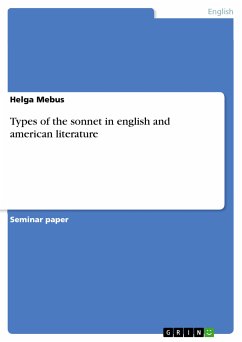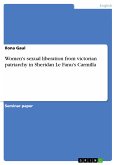Seminar paper from the year 2008 in the subject English Language and Literature Studies - Linguistics, grade: 1,0, University of Paderborn, course: Words in the Mind, language: English, abstract: When analysing the internal processes in a human’s mind in order to figure out how the processes of word-storage, word-production, and word-retrieving work, one of the features to be investigated is the act of word-formation. Next to the affixation and conversion, the creation of new words by combining two already existing words takes place in the human’s mind – a process called “compounding”. This paper deals with the act of compounding, the way new words are created by combination, its development in Old, Middle and Early Modern English, different features of standard compounds, and of other types of compounding. First of all, a brief introduction of the process of word-formation that has taken place in the English language over the last centuries, including Old English, Middle English and the Early Modern English will be given. This is followed by an overview of the general features of compounds themselves, including their structure, and a closer insight into nominal, adjectival, verbal and synthetic compounds. In chapter four, different types of compounding, like the neoclassical, the copulative and the exocentric compounds, which are somewhat exceptions to the normal compounds examined in chapter three, will be analysed and discussed regarding the standard compound structure. Concluding remarks will close this paper in chapter five.
Bitte wählen Sie Ihr Anliegen aus.
Rechnungen
Retourenschein anfordern
Bestellstatus
Storno



